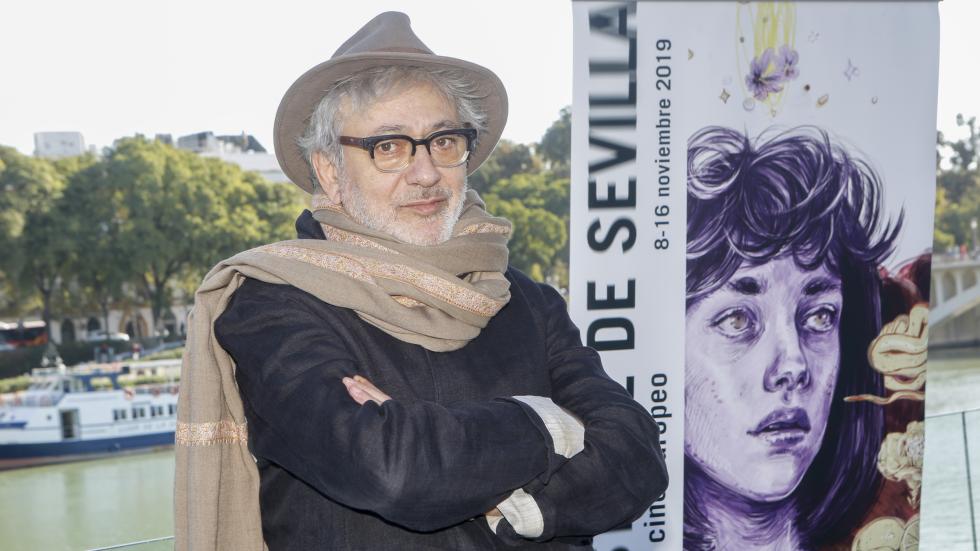Elia Suleiman has presented in the Seville Festival ‘It Must Be Heaven’, which has obtained the Special Mention by the Cannes jury. This comedy deals with a story where the own Palestinian director embarks on a long journey from Paris to New York, seeking funding for his next film: “I have never considered myself an exiled, because I am the one who has chosen the exile”, has noted. “I believe that my film has to be with this idea of the exile, but, at the same time, is not the theme this film deals with”.
With this story, the filmmaker comes back to his fixation towards the image over the word: “Actually I had in mind the idea of how I could maximise the image pleasure, as how I could use absurd and humoristic moments to let the audience chose his read, simple or complex”, has explained. For Suleiman, “laugh can alleviate the desperation in which we live nowadays. It has the power to break the time, with an euphoria feeling and is able to ease the worst that can happen to us thanks to the humour. When we are more desperate is when we need it the most”.
Suleiman writes, directs and leads ‘It Must Be Heaven’, a film where he faces the difficult condition of a Palestinian, turning in an impossible crossing between Buster Keaton, Jacques Tati and Roy Andersson. The minimalist comedy is about a Palestinian, the own director, who pretends to build a world’s reflection in his ridiculousness, cruelty and contradictions which we can laugh and think with at the same time.
Born in Nazareth in 1960, Elia Suleiman has lived in New York between 1981 and 1993. During this period, he directed his two first short films, ‘Introduction to the End of an Argument’ and ‘Homage by Assassination’ which he won several awards with. In 1994, he moved to Jerusalem, where the European Commission asked him to stablish a Film and Audiovisual Department in Birzeit University. His first feature, ‘Chronicle of a Disappearance’, won the award for Best Film in Venice in 1996. In 2002, ‘Intervencióndivina’ won the award by the Cannes jury and the award for the Best Foreigner Film in the Rome European Film Awards. His film ‘The Time That Remains’ made part of the Cannes Official Competition in 2009. In 2012, he directed the short film ‘Diary of a Beginner’ as part of the collective film ‘7 díasen La Habana’, which was projected that year in the section ‘Un Certain Regard’ in Cannes, festival where he obtained the award FIPRESCI in 2019 for his last film ‘De repente, el paraíso’.
Nacido en Nazareth en 1960, Elia Suleiman vivió en Nueva York entre 1981 y 1993. Durante este periodo, dirigió sus dos primeros cortometrajes, 'Introduction to the End of an Argument' y 'Homage by Assassination', con los que ganó numerosos premios. En 1994 se mudó a Jerusalén, donde la Comisión Europea le encargó establecer un Departamento de Cine y Audiovisuales en la Universidad Birzeit. Su ópera prima, 'Chronicle of a Disappearance', ganó el Premio a la Mejor Película en Venecia en 1996. En 2002, Intervención divina, ganó el Premio del Jurado en Cannes y el Premio a la Mejor Película Extranjera en los Premios del Cine Europeo en Roma.
Su película 'The Time That Remains' formó parte de la Competición Oficial de Cannes en 2009. En 2012, dirigió el corto Diario de un principiante como parte del film colectivo 7 días en La Habana, que se proyectó ese año en la sección 'Un Certain Regard de Cannes', festival en el que obtuvo el Premio FIPRESCI en 2019 por su último film, De repente, el paraíso.







